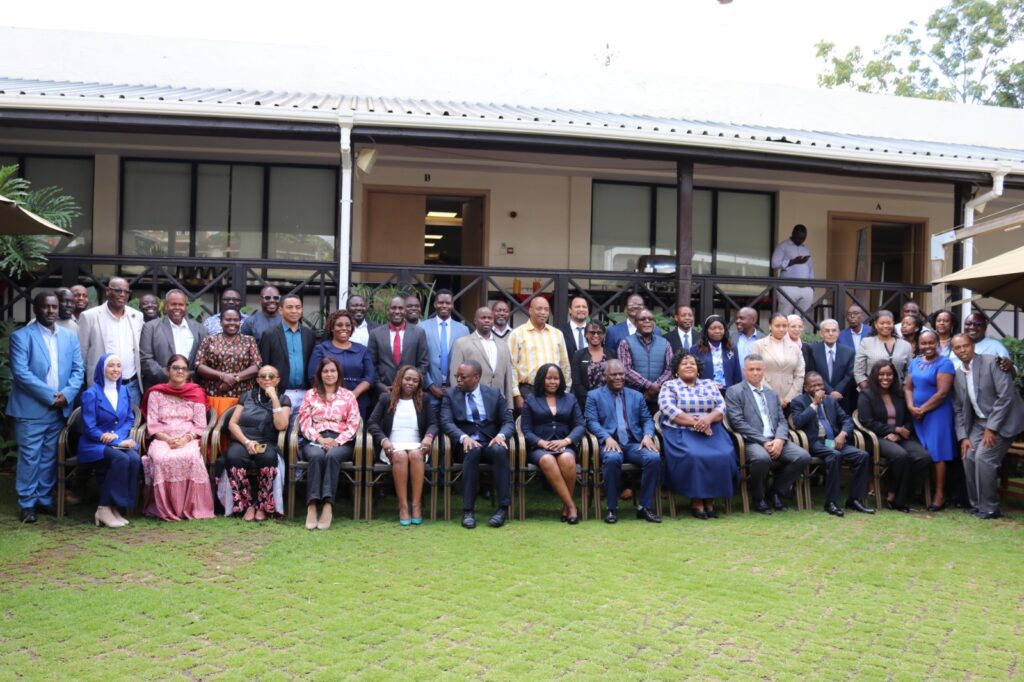
The COMESA region holds significant untapped potential in its seed market, with an estimated demand of two million metric tons (MT) of quality and improved seed. However, current production and access remains below 500,000 MT.
To address this gap, stakeholders from member states convened in Nairobi, Kenya on 20-21 May 2025 for a regional meeting aimed at enhancing regional collaboration and advancing the COMESA Seed Harmonization Implementation Plan (COMSHIP).
The meeting presented an opportunity for stakeholders, government agencies, seed producers, seed traders, researchers, extension officers, and farmers from member states to share insights on best practices and forge partnerships.
The Permanent Secretary in Kenya’s Ministry of Agriculture and Livestock Development, Dr. Paul Ronoh, represented by Dr. Alice Murege, Director for Socio-economic and Policy Development, emphasized the critical role of quality seed in boosting agricultural productivity, ensuring crop resilience and securing national food supplies.
Dr. Ronoh indicated that the meeting provided a pathway to understand the performance of the COMSHIP.
“We are also looking forward to the findings of the data collection and analysis in the COMESA Seed Information System, which provides a glimpse of the seed business in the COMESA Region for those who have already aligned their seed laws. I am happy that the National Seed Authorities have been the driving force in close collaboration with ACTESA on moving COMSHIP forward,” the PS said.
Further, Kenya Plant Health Inspectorate Services Managing Director, Prof. Theophilus Mutui, represented by Acting Director for Laboratory Services, Florence Munguti, urged stakeholders to adopt modern seed production methods, embrace biotechnology innovations and reinforce regulatory frameworks to support sustainable agriculture.
Dr. John Mukuka, CEO of the Alliance for Commodity Trade in Eastern and Southern Africa (ACTESA), highlighted the necessity of harmonized seed laws and regulations across member states. He stressed that a unified legal framework is essential for fostering a competitive and sustainable agricultural trade environment, which in turn supports regional economic growth and food security.
”China requires over 10,000 tons of agricultural produce, but we are not able to meet this demand. I hope that with the support from COMESA under the COMSHIP, we shall be able to increase production so we can meet the demand from China as well as the region, ” Dr Mukuka stated.
The meeting, supported by the COMESA RECAMP and funded by the European Union under the 11th European Development Fund (EDF), was seen as a milestone in regional efforts to improve seed trade.
COMESA Secretariat EDF Programme Manager Mshuka Kamwela, described the COMSHIP initiative as a clear demonstration of COMESA’s commitment to empowering smallholder farmers through better access to quality seed and strengthening food systems across the region.
The COMESA Seed Trade Harmonization Regulations came into effect in May 2014 and currently 10 member states namely Burundi, Egypt, Ethiopia, Eswatini, Malawi, Rwanda, Kenya, Uganda, Zambia and Zimbabwe have domesticated the regulations.

